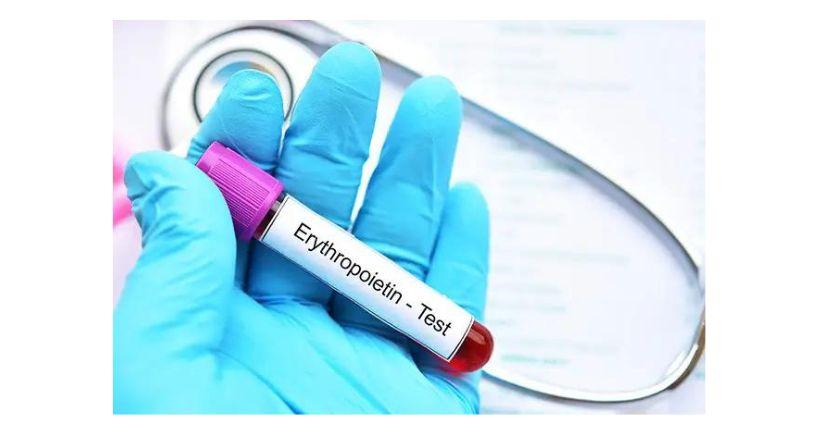
Managing Leukopenia: Evaluation And Treatment Strategies
The human body manufactures approximately 100 billion white blood cells (WBCs)which are called leukocytes. White blood cells have neutrophils which are the front liners in the immune system to fight against infections. These cells are the armed forces of the body and guard it against any foreign intruders that pose a threat such as bacteria and viruses. If the body has a smaller amount of these cells that is less than 4000 cells per microliter of blood, the condition is known as leukopenia and it makes the person vulnerable and susceptible to many infections.
The number of WBCs in the body is age and gender-related. The normal range for men is 5000 to 10000 per microliter of blood and for women is 4500 to 11000 per microliter of blood.
Leukopenia should not be confused with leukemia which is a type of cancer. Leukopenia is not cancer. However, leukemia can cause leukopenia as it affects the white blood cells as the healthy cells are outnumbered by the cancer cells.
What are the causes of leukopenia?
People with certain specific medical conditions like malnutrition, deficiency of vitamins and minerals, Human Immunodeficiency Virus (HIV), and the ones who are receiving cancer treatment usually develop leukopenia. Bone marrow disorders like multiple myeloma and aplastic anemia also lead to leukopenia. Additionally, people with autoimmune diseases when the immune system itself attacks the body develop conditions like rheumatoid arthritis, lupus, etc are also known to suffer from leukopenia.
What are the symptoms of leukopenia?
Leukopenia doesn’t have any symptoms, however, the infection caused by the condition produces the following symptoms:
- The person may develop a fever accompanied by chills
- They may have swelling and redness
- Sores in the mouth may occur
- Red and white patches in the mouth can develop
- Sore throat
- The person may have a cough and breathlessness
- There may be cuts with pus
- Painful urination may occur
- Unusual discharge from the vagina and itching may happen
Managing leukopenia
Management of leukopenia is very crucial for the health, well-being, and protection of the person.
The management begins with the diagnosis of the condition.
The doctor may suggest a complete blood count. If further investigation is required a urine test to determine the reason for infection and a chest X-ray to find if the person has pneumonia are done.
The treatment of leukopenia is based on the underlying cause of the infection. If the infection is due to bacteria, antibiotics are prescribed and if viruses are involved, then antiviral drugs are given to the person to fight the infection.
There are multiple other treatments. They include
Growth factors- These are medicines that are given to make the bone marrow to produce more blood cells to boost the white blood cell manufacturing consequently.
Delay in chemotherapy- The person is undergoing chemotherapy the treatment is stopped till the white blood cell count increases.
It may be difficult to avoid leukopenia but a person can take care of their overall health and prevent infections to decrease the risk of developing the condition.
These are some tips a person can keep in mind to prevent leukopenia.
- Washing of hands frequently with soap and water or an alcohol-based sanitizer.
- Taking vaccines for flu and COVID-19 and others if recommended by the doctor.
- Staying away from crowds and people who are feeling unwell to prevent being infected.
- Trying avoiding activities that may cause injuries, cuts, or scrapes, and take care of open wounds immediately. Avoid piercing and tattoos too.
- Washing fruits and vegetables before consuming, storing meat separately, using clean utensils, and cooking food as per the required temperature.
- Avoid sharing glasses, cups, and other food or drinks.
- Avoid sharing personal items like toothbrushes, towels, and razors.
- Wearing gloves while gardening.
- Picking up waste and soiled diapers with gloves and washing hands thoroughly after that.
- Avoid getting into ponds and lakes.
- Taking the prescribed medication without gaps to prevent infection.
Leukopenia occurs when the count of white blood cells in the body goes lower than the usual limit. There are multiple causes of leukopenia like autoimmune conditions, cancer, etc and the management includes accurate diagnosis, treatment, and prevention of the condition. The treatment involves antibiotics and antivirals and the person needs to take precautions to keep themselves away from infection to avoid complications. It is important to consult a doctor to treat and manage the condition effectively and follow their recommended guidelines.
Popular Searches :
Hospitals: Cancer Hospital in Delhi | Best Heart Hospital in Delhi | Hospital in Amritsar | Hospital in Ludhiana | Hospitals in Mohali | Hospital in Faridabad | Hospitals in Gurgaon | Best Hospital in Jaipur | Hospitals in Greater Noida | Hospitals in Noida | Best Kidney Hospital in Kolkata | Best Hospital in Kolkata | Hospitals in Rajajinagar Bangalore | Hospitals in Richmond Road Bangalore | Hospitals in Nagarbhavi Bangalore | Hospital in Kalyan West | Hospitals in Mulund | Best Hospital in India | | Cardiology Hospital in India | Best Cancer Hospital in India | Best Cardiology Hospital in India | Best Oncology Hospital In India | Best Cancer Hospital in Delhi | Best Liver Transplant Hospital in India
Doctors: Dr. Rana Patir | Dr. Rajesh Benny | Dr. Rahul Bhargava | Dr. Jayant Arora | Dr. Anoop Misra | Dr. Manu Tiwari | Dr. Praveer Agarwal | Dr. Arup Ratan Dutta | Dr. Meenakshi Ahuja | Dr. Anoop Jhurani | Dr. Shivaji Basu | Dr. Subhash Jangid | Dr. Atul Mathur | Dr. Gurinder Bedi | Dr. Monika Wadhawan | Dr. Debasis Datta | Dr. Shrinivas Narayan | Dr. Praveen Gupta | Dr. Nitin Jha | Dr. Raghu Nagaraj | Dr. Ashok Seth | Dr. Sandeep Vaishya | Dr. Atul Mishra | Dr. Z S Meharwal | Dr. Ajay Bhalla | Dr. Atul Kumar Mittal | Dr. Arvind Kumar Khurana | Dr. Narayan Hulse | Dr. Samir Parikh | Dr. Amit Javed | Dr. Narayan Banerjee | Dr. Bimlesh Dhar Pandey | Dr. Arghya Chattopadhyay | Dr. G.R. Vijay Kumar | Dr Ashok Gupta | Dr. Gourdas Choudhuri | Dr. Sushrut Singh | Dr. N.C. Krishnamani | Dr. Atampreet Singh | Dr. Vivek Jawali | Dr. Sanjeev Gulati | Dr. Amite Pankaj Aggarwal | Dr. Ajay Kaul | Dr. Sunita Varma | Dr. Manoj Kumar Goel | Dr. R Muralidharan | Dr. Sushmita Roychowdhury | Dr. T.S. MAHANT | Dr. UDIPTA RAY | Dr. Aparna Jaswal | Dr. Ravul Jindal | Dr. Savyasachi Saxena | Dr. Ajay Kumar Kriplani | Dr. Nitesh Rohatgi | Dr. Anupam Jindal |
Specialties: Heart Lung Transplant | Orthopedic | Cardiology Interventional | Obstetrics & Gynaecology | Onco Radiation | Neurosurgery | Interventional Cardiology | Gastroenterologist in Jaipur | Neuro Physician | Gynecologist in Kolkata | Best Neurologist in India | Liver Transfer



















